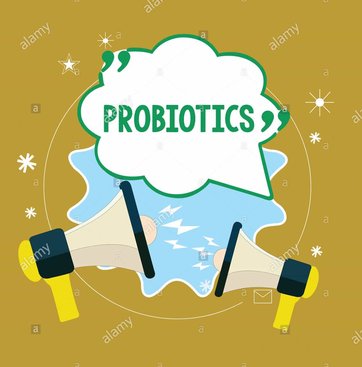Natural remedies sometimes are the best remedy. You probably heard this sentence a thousand times. Well, it’s true. While various medicines can be quite powerful, they have their side effects. Essential oils, on the other side, have become famous for their beneficial effects. They are usually made from parts of plants such as leaves or herbs. You can use these oils to manage various health conditions in the body.
Essential oils for tooth pain and cavities:
Table of Contents
Essential oils represent one of the oldest medicines known to humans. Recently, its effects became studied among scientists and nowadays many doctors incorporate them in their clinics. Essential oils all together with holistic therapy consider humans as a whole-being with spirit and emotions always in search of health and happiness. It also takes a long time to produce one pound of pure essential oil. It’s important to remember that essential oils are of no value if they aren’t completely pure. Anything less than pure will not offer you the desired results or even can be toxic.
Since it’s quite hard to make them, essential oils are quite pricey. But, also much more useful than over-the-counter medications. Whether you apply them in your skin, teeth, hair or nails, essential oils will penetrate your system within 20 minutes. You can use essential oils for internal consumption as well. Moreover, the US Food and Drug Administration recognizes crucial oils as safe for consumption.
That shouldn’t be surprising since essential oils can be so beneficial, in ways you cannot imagine. They contain the same revitalizing, freshening and bolstering characteristics as the plants they come from. They prevent alterations and microorganisms in your cells. Moreover, essential oils contain both anti-inflammatory and antibacterial properties. They’ve been used for reducing anxiety, aromatherapy, religious practices, and food preparation.
But, do you know that you can use essential oils for keeping your beautiful smile? On the other hand, you can use essential oils, which have been around for many years. Various essential oils act as disinfectants in oral cavities. That’s why we compiled a list of 9 essential oils that you can use for any cavities, tooth pain, or whitening.
Melaleuca:
Many people know it as tea tree oil. You can find it easily in Austria in a tree that resembles a bush. It was first used by Aborigines who would chew its leaves and then turn them to tea. In modern times, however, it is famous for its disinfectant properties. One of its most important components is the Terpenoid which it’s clinically effective. A study conducted in Germany found that melaleuca was extremely effective in removing the smudged layer, and way less toxic than any other product. Moreover, melaleuca reduces the symptoms of candidiasis, a fungal infection in the mouth and teeth.
If you wish to get rid of harmful chemicals that your mouthwash uses, then Melaleuca can come in very handy. You can prepare your fresh mouthwash by diluting Melaleuca with water in a glass. You can later use this mixture to rinse your mouth before you go to the bed for effective results.
And last, melaleuca is used as a natural remedy for a sparkly smile. It is quite famous for whitening and polishing your teeth. As a result, you will have a brighter and cleaner smile. And the best thing about it? It doesn’t come from any laboratory but Mother Nature herself.
Clove for tooth pain and cavities:
Clove is arguably the most famous essential oil. It was first used in India and China before it came to Europe. As its plant, clove oil is quite rich in vitamins and minerals. It contains vitamins A and C, potassium and sodium. Its main component eugenol is a topical antiseptic, and counter-irritant. Moreover, a study prefers clove oil instead of benzocaine as a topical anesthetic agent.
Cloves may not be the most pleasant ingredient to taste, but its effects are certainly very helpful. It does not take any preparations to use clove as a remedy for tooth pain. One can directly use clove oil applying it on the affected tooth. If the clove oil isn’t available, you can dry the clove in your home and proceed to place it in your mouth, keeping it around your teeth that causing the pain.
You can use clove oil for tooth pain, by wiping it over the gum where it hurts. essential oil suggests that clove oil is powerful to fight any bacteria in your teeth. You can find clove oil in a lot of supermarkets and drugstores. However, don’t forget that clove oil doesn’t have great taste. It’s quite unpleasant. If in any case, your tooth pain doesn’t stop even after you use clove oil, it is best to contact your dentist.
Lavender
Lavender oil is extracted from the lavender plant. The most important components are the terpenes and sesquiterpenes. Besides being used in oral health, lavender oil can be beneficial for psychological problems as well. It is largely used in aromatherapy, although it has many other important properties, such as anti-bacterial and anti-inflammatory properties. Researchers concluded that lavender oil reduces anxiety in patients in dental clinics. Patients show low pain scores as well, after tooth extraction. Not only but lower levels of blood pressure were also found after inhalation of lavender oil.
Another great thing about lavenders is that they are pleasant to the nose. They can easily take the bad breath away while in effect. Like most of the essential oils, this can also be used as a mouthwash by adding its few drops in a glass of water. To experience results in a quick time, it is suggested to use the oil with warm water. You mustn’t swallow it.
Peppermint
Peppermint oil can be beneficial in cases of tooth pain. If you apply it topically, it will soothe your nerve pain quickly. It also has many other properties such as antimicrobial and anti-inflammatory, which helps to reduce the effects of any infection you might have. Besides, peppermint oil has a cooling sensation that can numb the pain.
Usually, for applying it to your toothache, you add ten drops of oil to one cup of water, which you shake and mix for some time. You can use it as a mouthwash for several minutes. Peppermints are strong, so do ensure that you use its low concentration for your teeth. Although, it is unlikely to have any side-effects with it, if you do use it in high concentration, you will feel a cold sensation in your mouth for a long time.
Cinnamon
Cinnamon oil comes from several types of trees, usually from the leaves of the Cinnamomum verum tree. It’s widely used in aromatherapy in our houses, and it might reduce stress, anxiety, and depression. Because of its antibacterial features, you can use it for tooth pain.
You can apply the cinnamon essential oil to your bacteria and it will reduce them in no more than 48 hours. It’s a good disinfectant, thanks to its antimicrobial features. That is why many products use cinnamon as a main ingredient, especially some chewing gum. Cinnamon is typically used to treat dental plaques.
Many Southeast Asian countries use the combination of cinnamon and honey to reduce their tooth pain. Usually, it involves adding a few drops of honey in powdered cinnamon. Next, the combination is applied to the teeth causing problems to bring down the pain.
Eucalyptus
This essential oil should be at the top of your list if you’re dealing with infected gums. It has antibacterial and pain-relieving properties. When used against microorganisms, it is incredibly useful. Moreover, a study concluded that eucalyptus essential oil is useful in reducing pain among oral surgeries.
To use eucalyptus essential oil, add 3 to 5 drops and inhale it. Ideally, you can use this oil with a carrier oil, by diluting it. They work well together and show visible results in quick time. In this way, you will be able to wash your mouth with it.
Thieves
Thieves essential oil serves as a mix of many different essential oils such as cinnamon oil, rosemary, and clove essential oil. It combines all of their properties in one bottle, that’s why it’s widely useful in medicine. You can use it to numb pain, or kill microorganisms, and for many other benefits.
Moreover, a study in 2019 proved that a component in thieves essential oil might heal wounds faster. Besides its ability to reduce bacteria in wounds, thieves oil also promotes healing. Many cultures have been using this oil for babies who are teething to ease the associated pain.
Lemon
You might be quite surprised by this one, but the lemon essential oil is quite beneficial for teeth. Especially for whitening them. It also prevents bacteria from growing and helps you keep a healthy mouth. Simply, because of its bleaching qualities, lemon essential oil might be the best oil for whitening your teeth.
And the best thing about it? You can prepare it yourself. All you need to do to prepare lemon essential oil is to add 10 drops of lemon essential oil and less than half of a cup of coconut oil. You need a tablespoon of baking soda as well. Mix it all, and brush your teeth as you would brush them with toothpaste. Be careful not to ingest the lemon oil.
Oregano
It might be surprising to find this name here, as usual, people use oregano in Italian foods. However, it can be made in essential oil too, a quite powerful one that has many health benefits. It’s been used by the ancient Romans and Greeks for medicinal purposes. The oil contains many essential components, such as terpenes and phenols.
Doctors use essential oregano oil as a natural antibiotic with its antibacterial and anti-inflammatory features. Besides its wide usage in dental clinics, you can use essential oregano oil to lose weight. However, in 2012 a few scientists tested oregano against many bacteria. The study concluded that essential oregano oil was a powerful agent against any bacteria.
Oregano oil makes a very effective combination along with carrier oil. Applying the mixture on the teeth and leaving it there for a few minutes can ease the toothache. No side effects from this natural oil mean that people can use it without any second thoughts. If you have a plant of oregano or access to its leaves, then chewing on the fresh ones can also promote good oral health.
Conclusion:
Empty pockets and tired of your visits to your dentist’s office? Essential oils might be the solution to your teeth and gums. Sometimes it is best to educate yourself about your oral health and take the matter into your own hands. Research shows that using essential oil for your oral health it’s not only healthy but also much cheaper.
While there is no doubt about the fact that remedies at home cannot completely replace professional oral help, they are certainly worth giving a try for minor problems. If you go on to explore traditional approaches to keeping teeth and gums healthy, you are likely to come across even more options that are far more varied than even the essential oils.
Moreover, holistic medicinal practices are affecting more and more people every day. They help in making the best lifestyle decisions, whether that has to do with your diet, nutrition or your exercises. There are always other alternatives besides the over-the-counter medications that you’re used to. Having tooth pain can make your life a painful experience. Even the simplest tasks such as eating and drinking will be challenging.
No matter how helpful we believe essential oils might be, if your pain doesn’t go away it is still best to go to your dentist and have your teeth checked. If you happen to have any known allergies to a particular herb or oil, then it is better to take other options to fix your problem.
See some healthy products at: https://kidzcrowns.com/




More Stories
All you need to know about rice bran oil
12 medically proven health benefits of Berberis vulgaris
Ylang Ylang essential oil: Benefits, Uses, & Side Effects